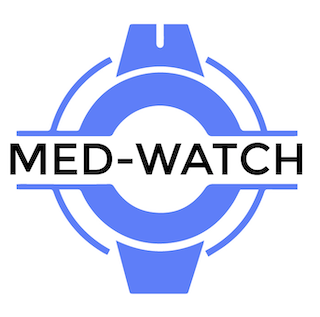The Ever-Present Nature of Home BP Monitoring
Older parents aged 50 to 80 suffer from hypertension and/or other blood pressure-related chronic health problems, such as kidney disease, congestive heart failure, coronary heart disease, and stroke. They can control their blood pressure if they monitor it at regular intervals. For this, they should be able to measure their blood pressure in a residence or any other setting. You can gift them a blood pressure watch to enable them to do this.
In the group of older people from 50 to 80 years who have BP-related health conditions, their physicians instruct about 62% of them to consistently check their BP in routine life, even at home. Out of these, 48% of people implement this instruction. The people whose physician has instructed to ensure home BP monitoring display more possibility of doing so as compared with those who are not instructed. Among those who any physician has not instructed, 26% voluntarily adopt this practice.
Those who do home BP monitoring have a robust drive for it for the following reasons. This activity prevents a decline in cognitive function for 13% of people, decreases the risk of kidney disease by 17%, avoids heart disease by 32%, and minimizes the risk of stroke by 37% of people.
Within the age group of 50 to 64 years, 45% do home BP monitoring. This percentage increases to 52 for the age group of 65 to 80. Of the older people who do not suffer from mental health problems, 52% do home BP monitoring. If they have poor or fair mental health, 41% execute this method.
Home BP monitoring has become so prevalent that 74% of older people have purchased a home BP monitor. Of these, 55% revealed that they regularly used this monitor, while the remaining 19% commented that they failed to use it.
Among those who had bought the home BP monitor, 20% use it on less than one occasion per month, 28% use it from one to three times per month, 16% use it one time a week, 21% use it many times in a week, and 14% used it one time in a day.
The preceding statistics prove that home BP monitoring has become widespread among older people due to its health benefits. The latest device to measure BP at home is a blood pressure watch. As compared to a home BP monitor, its usage is simpler. For a home BP monitor, you have to position the cuff around your upper arm and press the button on the monitor, while for a blood pressure watch, you need to wear the watch on your wrist and hold your wrist on your heart.
Sharing Blood Pressure Watch Readings with Your Physician
Older people can measure their BP at home with this watch and then share the readings with their physicians. After analyzing the trend of the BP, the physician can provide feedback, prescribe medicine, and suggest lifestyle changes to manage the BP. Older people can address their BP issues more finely when they follow their physician’s advice. The definite outcome of these activities is they can keep at bay the possibilities of cognitive decline, kidney problems, heart disease, and stroke. Better maintenance of their health motivates them further to follow this process diligently.
The Management of BP in Older Age
In the contemporary era, people come across stress, sedentary life, diabetes, prehypertension, genetic tendencies, side effects of medicines, and being overweight. Due to such causes, they suffer from high BP when they grow older.
High blood pressure has a synonym, namely, a “silent killer.” This condition can adversely affect the heart, brain, or kidneys and sometimes be fatal. A person does not realize that they are suffering from high blood pressure until they notice that they are having a grave problem with the heart, brain, and kidney.
High blood pressure can lead to a heart attack or a brain stroke. It can cause the bulging of arteries, leading to heart or kidney failure. If the optical nerve bursts, the person becomes blind. Those with high blood pressure can also fall prey to Alzheimer’s disease.
As the day progresses, the changes in activity, stress, and diet bring about a fluctuation in blood pressure. Thus, you must have a record of the average blood pressure across the day rather than a one-time check in your physician’s clinic. Those older people who regularly measure their BP and share the readings with physicians are advised by the physician to do one or more of the following lifestyle changes:
- Do meditation or yoga to ensure a low-stress level
- Ensure a water intake of a minimum of two liters per day
- Quit smoking and minimize alcohol consumption
- Do exercise for a minimum of half an hour per day
- Maintain the ideal weight
- Consume vegetables, fruits, and dairy products of low fats
- Have a diet having low amounts of Sodium
After older people make these modifications in their lifestyle, they can continue to take blood pressure readings at home. They will certainly observe that they have a better blood pressure trend. Then, their physician may also reduce the dosage of the medicine. It will invigorate them, which will result in better confidence in being able to handle the BP issues. The culmination of all this is improved mental health and increased longevity of life.
Conclusion
The best gift you can give to your older parents is a blood pressure watch. This gift has the potential to be a game-changer. You can watch your parents being healthy, happy, and relaxed during their golden years. It is simply unfathomable to imagine the appreciation this watch brings to the lives of older parents.
Check out MedWatch's Blood Pressure Watch by clicking here: Med-Watch
